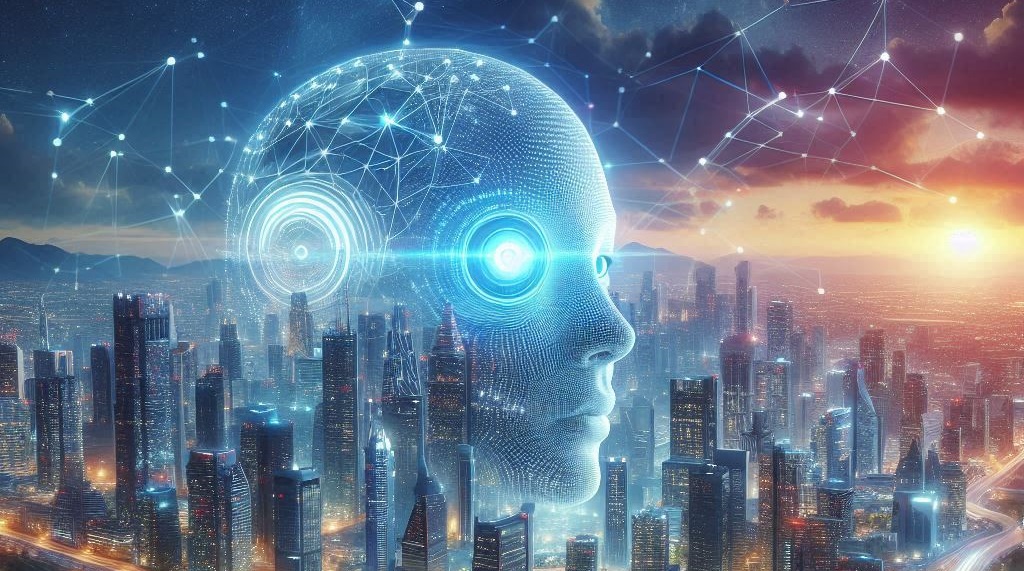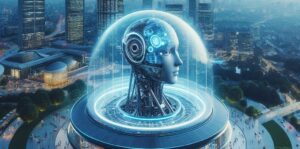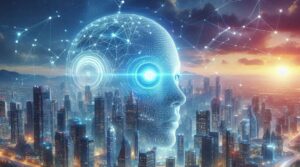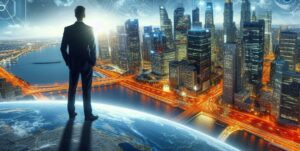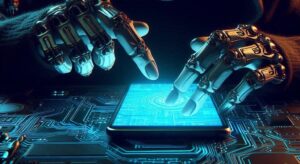Artificial Intelligence (AI) has already transformed the way we live, work, and interact with technology. From self-driving cars to virtual assistants like Siri and Alexa, AI is embedded in the fabric of our daily lives.
As we look ahead, the next decade promises even more groundbreaking advancements. Below, we explore five key predictions for the future of AI, and what these could mean for industries, society, and human life as we know it.
Read More: Mastering the Art of Productivity: Strategies for Achieving More in Less Time
1. AI Will Revolutionize Healthcare Delivery
Healthcare has been one of the most promising areas for AI adoption, and its impact will only increase in the coming years. AI-driven diagnostics, personalized medicine, and even robotic-assisted surgeries are already on the horizon, but the next decade will likely see these technologies become mainstream.
AI is expected to dramatically enhance diagnostic capabilities. For instance, AI algorithms can analyze medical images like X-rays, MRIs, and CT scans much faster and with comparable accuracy to human radiologists. This will not only speed up the diagnostic process but also make it more accessible, especially in remote or under-resourced areas where specialized medical professionals are scarce.
Beyond diagnostics, AI-powered systems will allow for hyper-personalized treatments based on a patient’s genetic makeup, lifestyle, and other health data. Machine learning models will continuously refine their predictions about which treatments will be most effective for individual patients, shifting healthcare from reactive to proactive.
In surgery, AI-powered robots are set to become even more sophisticated, providing precision beyond what human hands can achieve. Surgeons will likely collaborate more with robotic assistants to perform complex procedures, reducing the margin for human error. Telemedicine, augmented by AI, will further expand, allowing doctors to remotely consult with and treat patients in real-time, making healthcare truly global.
2. AI Will Drive Autonomous Transportation
The vision of fully autonomous cars has long captured the public’s imagination, and the next decade might finally bring it into reality. While self-driving technology has already made significant strides, there are still several challenges, such as regulatory hurdles, infrastructure readiness, and safety concerns, that need to be addressed.
Over the next ten years, we are likely to witness the widespread adoption of autonomous transportation in urban areas, particularly for public transportation and delivery services. Companies like Waymo, Tesla, and Uber are working tirelessly to perfect self-driving algorithms that can handle the complexities of real-world traffic.
In the logistics and freight industry, AI-driven autonomous vehicles and drones will revolutionize last-mile delivery, reducing costs and improving efficiency. Imagine packages being delivered to your doorstep by drones within hours of ordering, or autonomous trucks that operate 24/7 without the need for human drivers. This shift will have massive economic implications, especially in supply chains, where companies can optimize logistics like never before.
However, as autonomous vehicles proliferate, they will also bring new challenges, such as concerns over data privacy, cybersecurity risks, and the displacement of jobs in the transportation sector. Policymakers will need to strike a balance between encouraging innovation and ensuring safety standards to win public trust.
3. AI Will Redefine the Future of Work
The future of AI will significantly impact the job market, but the real question is: how? While many fear that automation will replace human jobs, it’s more likely that AI will transform, rather than eliminate, work.
AI is set to handle repetitive, mundane tasks, allowing workers to focus on more creative, strategic, and complex problem-solving activities. In industries like manufacturing, logistics, and customer service, AI-driven automation will take over routine tasks, such as data entry, scheduling, and customer inquiries, thereby freeing up human workers to engage in tasks that require emotional intelligence, innovation, and human insight.
In knowledge-based industries like finance, marketing, and even law, AI will act as an assistant, providing valuable insights through data analytics, making predictions, and automating report generation. The role of humans will shift to interpreting this data and applying it to decision-making, problem-solving, and strategy.
However, this transformation will require a massive upskilling of the workforce. To remain relevant, employees will need to adapt to working alongside AI systems and developing skills in areas like data literacy, AI management, and machine-human collaboration. Educational institutions and corporate training programs will need to evolve rapidly to prepare the workforce for this new reality.
4. AI Will Strengthen Cybersecurity – And Also Complicate It
As we become more reliant on technology, cybersecurity will be one of the most crucial areas where AI can make an impact. The increasing sophistication of cyberattacks has already necessitated the adoption of AI for defense mechanisms, and this trend is set to grow exponentially in the coming years.
AI will play a pivotal role in identifying and mitigating cyber threats. Machine learning algorithms can detect unusual patterns and behaviors in real-time, flagging potential security breaches before they can cause damage. By continuously learning and evolving, AI will stay one step ahead of cybercriminals, automating threat detection and response.
However, just as AI will be used to strengthen cybersecurity, it will also be leveraged by malicious actors to carry out more advanced and harder-to-detect attacks. AI-driven malware, for example, could autonomously adapt and change its behavior to avoid detection. The future will likely see an AI arms race between cybersecurity experts and cybercriminals, with each side using AI to outsmart the other.
Policymakers, companies, and AI developers will need to collaborate closely to develop robust AI frameworks that promote cybersecurity and reduce the risks of AI being misused.
5. AI Will Enhance Human Creativity and Collaboration
One of the most exciting predictions for AI is its potential to amplify human creativity. While we often think of AI as a tool for solving logical problems or performing repetitive tasks, its role in creative industries like art, music, and design is expanding rapidly.
Generative AI models, such as OpenAI’s GPT or DALL·E, are capable of creating original pieces of art, composing music, writing stories, and even generating code. In the next decade, these AI systems will become even more sophisticated, capable of collaborating with human creators to co-produce content. Imagine a scenario where an artist uses AI to generate dozens of iterations of a concept before choosing the best one, or a musician working with AI to compose a symphony with perfect harmony and melody.
In business, AI will streamline collaboration by enabling enhanced communication tools and virtual collaboration platforms. AI-powered systems could automatically summarize meetings, track action items, and suggest optimal times for collaboration, freeing up time for creative and strategic thinking.
However, the challenge will be in ensuring that AI complements human creativity without replacing it. While AI can generate content, the human touch, emotional nuance, and unique perspective will still be invaluable in the creative process.
Conclusion
The future of AI is both exciting and complex. In the next decade, AI will revolutionize industries, redefine the job market, and enhance human creativity, all while raising ethical, privacy, and security concerns that will require careful consideration.
As we move forward, it will be crucial to ensure that AI remains a tool for human empowerment, driving positive changes while being mindful of its potential risks. The next ten years will undoubtedly be a thrilling journey into the future of artificial intelligence.
